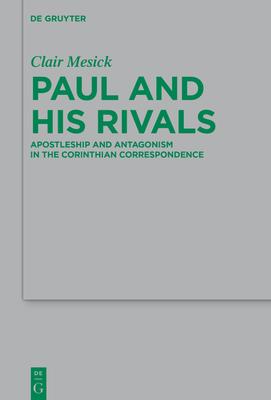At the heart of Paul's Corinthian correspondence is a historical puzzle. How did the relative calm of 1 Corinthians deteriorate into the chaos of 2 Corinthians, and what role did the so-called Jewish "super-apostles" play in that conflict? This book proposes a new solution: it was Paul, not his rivals, who shot the first volley in the Corinthian conflict.
Paul's claims of unique authority--for instance, as the architect atop whose foundation all others must build (1 Cor 3:10) and the Corinthians' father while others are mere pedagogues (4:15)--would relegate other leaders to lesser positions. His contention that accepting financial support put an obstacle before the gospel (9:12) would jeopardize the livelihood of apostles who relied on such support. Finally, Paul's claim that he becomes "lawless to the lawless" (9:21) or that "circumcision is nothing" (7:19) could throw into question Paul's own Jewishness (cf. 2 Cor 11:22). By reading the Corinthian correspondence against the grain--imagining how Paul's letter might have backfired for an audience who did not yet take him as scripture--this book explores how misunderstandings and misinterpretations can fracture church communities and cause a ripple effect of conflict and accusation.
